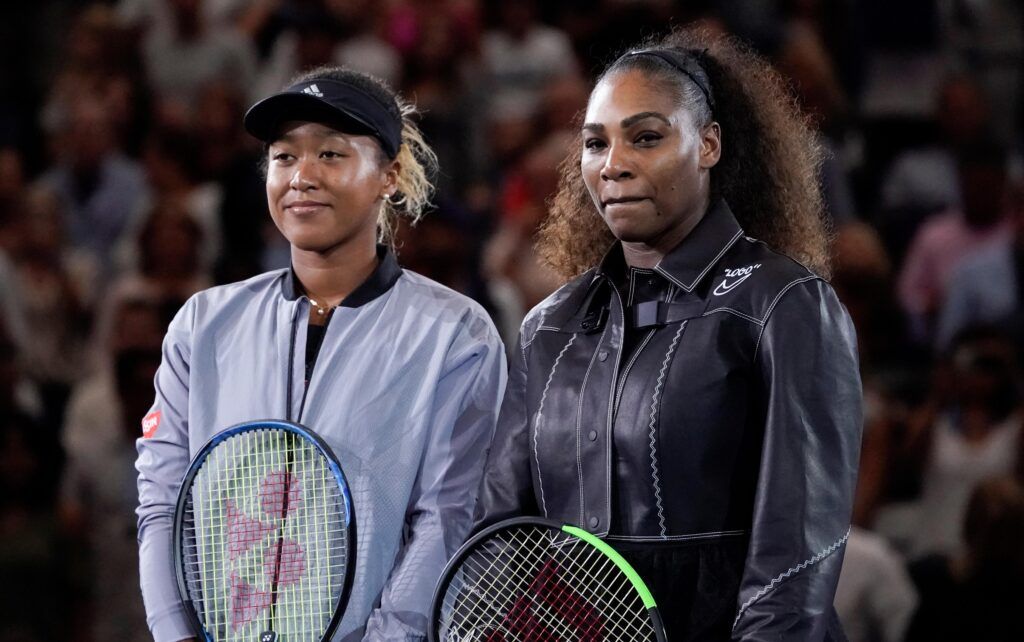Serena Williams’ former coach Rennae Stubbs has spoken out about Naomi Osaka’s controversial runner-up speech at the 2025 Canadian Open, drawing parallels to how the American tennis icon handled a similarly charged moment with the Japanese tennis star at the 2018 US Open.
The contrast couldn’t be more striking. While Williams made sure to celebrate her opponent even in defeat, Osaka’s brief remarks left many questioning her sportsmanship after failing to acknowledge her young opponent’s historic achievement.
How Does Serena Williams’ 2018 US Open Gesture Highlight the Contrast With Naomi Osaka’s Canadian Open Speech?
On her namesake podcast, Stubbs pointed out that even when emotions were running high, Williams made it a point to celebrate Osaka’s achievement, setting an example of sportsmanship that seems forgotten in Montreal.
The latest controversy emerged after Osaka’s 2-6, 6-4, 6-1 defeat to 18-year-old local wildcard Victoria Mboko. The win marked Mboko’s first WTA title and made her one of the youngest Canadian champions in tournament history. For the teenager, this wasn’t just another victory but a career-defining moment that deserved recognition.
However, the trophy ceremony turned into a talking point when Osaka’s post-match speech lasted less than 30 seconds. She thanked her team, the tournament organizers, the ball kids, and volunteers, but did not acknowledge Mboko’s milestone. The contrast was stark when Mboko took the microphone, visibly emotional, thanking Osaka directly and calling her a role model she had admired since childhood.
Naomi Osaka after losing to Victoria Mboko in Montreal final
“I don’t really wanna take up too much time. I’ll just say thank you to everyone. Thank you to my team, the ball kids, organizers, & volunteers. I hope you guys had a good night.”
pic.twitter.com/2FG17imqmK
— The Tennis Letter (@TheTennisLetter) August 8, 2025
That omission sparked a wave of criticism on social media, with many fans accusing Osaka of diminishing Mboko’s victory. The frustration grew when fans remembered an earlier incident during the final. Osaka was given a code violation for hitting a ball into the stands after double-faulting on break point. For some viewers, the short speech and earlier outburst painted a picture of poor sportsmanship, a narrative Osaka later addressed with a public apology.
MORE: What Did Naomi Osaka Say in Her Apology Message to Victoria Mboko Hours After Canadian Open Final? Everything To Know
What Can We Learn From Williams’ 2018 US Open Response?
Stubbs used the moment to revisit the 2018 US Open women’s singles final between Williams and Osaka, widely regarded as one of the most controversial matches in modern tennis. During a tense second set, chair umpire Carlos Ramos issued Williams three code violations: coaching, racquet abuse, and verbal abuse.
Williams’ dispute with Ramos dominated the headlines, but in the immediate aftermath of her loss, she turned her attention to the then-20-year-old Osaka during the trophy ceremony. That decision showed what true champions do when the spotlight gets uncomfortable.
“Does she [Naomi Osaka] not remember the US Open?” Stubbs asked on “The Rennae Stubbs Tennis Podcast.” “I mean, as much as Serena wanted to like storm off the court after that situation at the US Open, [she] took it upon herself to put her arm around Naomi after she’s crying and say, ‘I just want to say to the crowd,’ like she won the match. I mean, would Serena go back and do things differently? Absolutely. But she at least congratulates.”
Stubbs described how Williams quieted the Arthur Ashe Stadium crowd, which had been booing in protest of the umpiring, and urged them to cheer for Osaka instead. The moment transformed what could have been a bitter ending into something redemptive.
“She silenced the crowd attempting to boo Naomi Osaka. She was on Naomi Osaka’s side. She got them to cheer for her,” Stubbs explained.
The veteran coach emphasized what made Williams’ response so powerful. “She understood even that in that moment when she was furious and upset, and some would say acting a little petulantly, to not take away this moment from this other person that she shared it with, which I thought was actually a tremendous effort,” Stubbs said.
The comparison highlights how champions handle defeat. Williams, despite her own emotional turmoil, recognized that Osaka deserved her moment. Seven years later, when Osaka found herself in the opposite position, that same grace was nowhere to be found in Montreal.


AloJapan.com